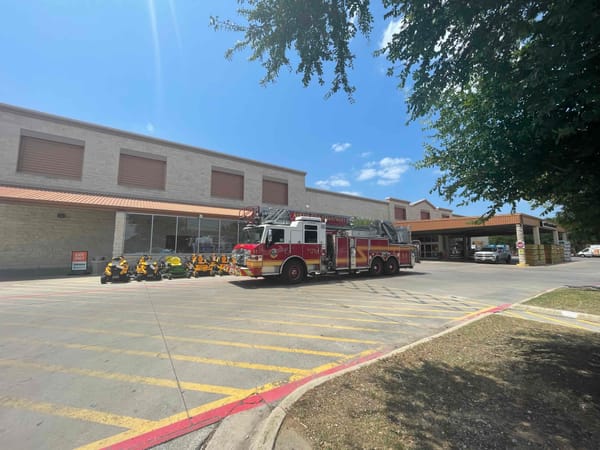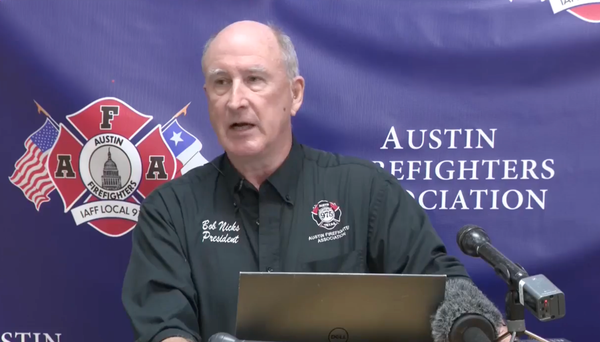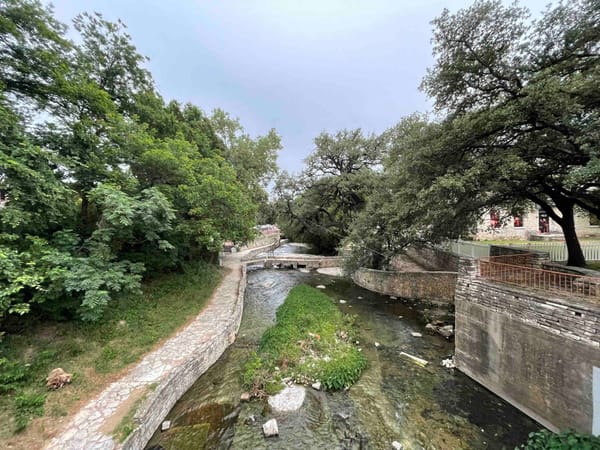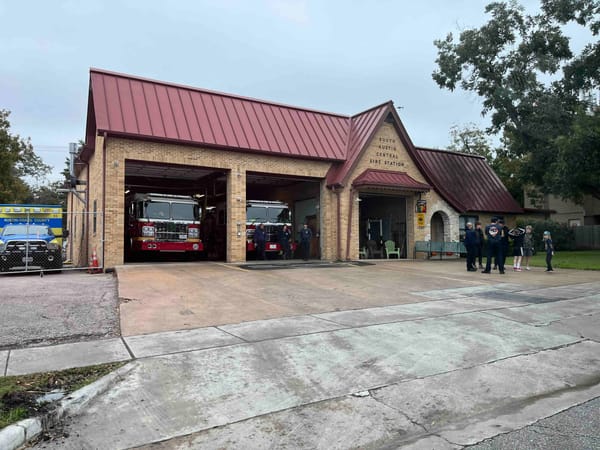The budget amendments
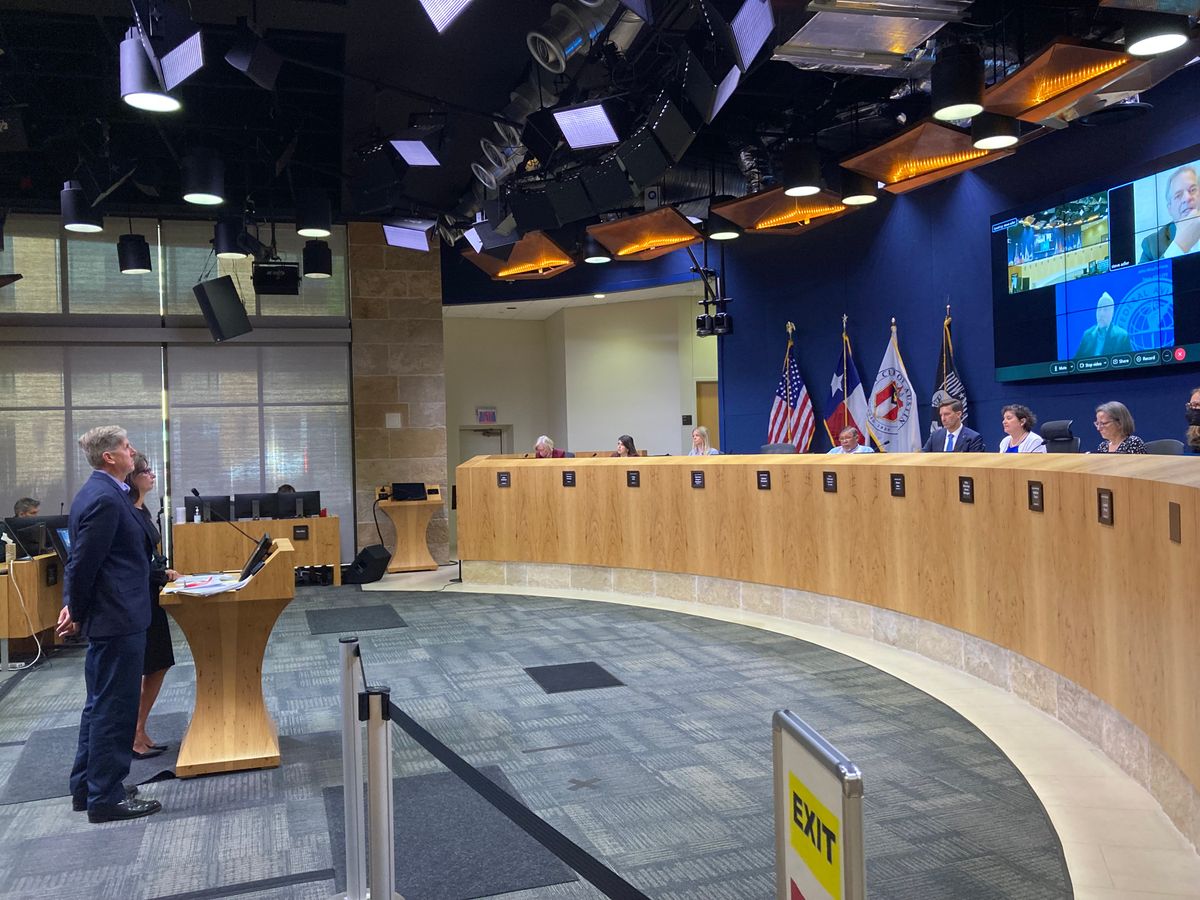
Tomorrow City Council begins deliberating on the budget. As I've said before, the vast majority of the $1.3 billion general fund is not seriously up for debate: it's already tied up in the pay and benefits for the employees who provide core city services (mostly police/fire/EMS). There's also not been much debate about taxes ever since the legislature introduced strict new revenue limits in 2019.
Instead, Council members push for little changes here and there. Those little changes can still be a big deal.
Below are the ones that stood out to me. I hear that most of these will pass, although it's not clear to me what will be cut to make room for them, since the city manager's proposed budget already went all the way up to the 3.5% tax limit. We'll see!
Tenant stabilization: Chito Vela proposes $7.8 million for rental assistance, eviction counseling and relocation assistance. The city's current rental assistance program is likely to run out of money in April; this should keep it funded through the rest of the fiscal year.
This is a critical part of preventing the homeless population from getting bigger.
Speaking of homelessness: Unsurprisingly, a number of CMs have amendments on the subject.
Ryan Alter proposes $1.5 million in ongoing funding for 100 permanent supportive housing vouchers. In other words, this will pay for 100 people to live in an apartment with on-site addiction, mental health and other counseling services aimed at getting people back to stable, independent living.
Zo Qadri proposes $3 million to fund services at permanent supportive housing developments.
Ryan Alter also proposes adding two positions ($157k) to oversee homelessness service contracts and hold vendors accountable to meeting their goals, $833k to set up digital navigation services for people enlisting in the city's coordinated entry system, $750k in one-time funding to help service providers hire more case managers, and $600k in ongoing funding to set up a "diversion and rapid exit" response that identifies people who can avoid long-term homelessness if they can get quick help resolving a crisis. Finally, he proposes $600k in ongoing funds aimed at reducing evictions by educating tenants on their rights and offering them assistance in setting up tenant organizations.
Parent Support Specialists: Jose Velasquez proposes $2.4 million to expand full-time PSS to 74 campuses. I don't know how that compares to the status quo. Because AISD is so severely underfunded, the city of Austin (also underfunded!) has a history of paying for services that really belong in a school district budget. PSS are the social workers who work with at-risk families to address problems that are likely to disrupt a kid's education or school attendance. It's the usual stuff: housing insecurity, hunger, transportation, health care.
Throwin some shade: Vela proposes $2 million to put in place more shade structures in parks. If this has a chance of passing, a week of 105 degree weather is the time to propose it.
Victims Services Counselors: For the past year, a federal grant has paid for ten victims services counselors. Five of them are devoted to domestic violence, while the rest specialize in other crimes (there is fittingly one focused just on vehicular homicide). The funding lapses next month, but the city is applying for a new grant that will fund five positions. Whether or not we get the grant, there will be a funding shortfall that will lead some of the counselor positions to be eliminated. Alison Alter has thus proposed funding (up to $770,000) to maintain all of the current positions.
Collaborative Care Communication Center: Alter proposes $1.1M to add 10 employees to an EMS program that diverts "low-acuity" 911 calls from costly ambulance trips and ER visits. Last year the C4 served 4,217 patients. It currently only operates from 9 am to 9 pm; the proposed new positions will allow it to operate 24/7.
Selena Xie, the EMS union president, tells me the C4 helps with all kinds of calls that likely don't require a full-fledged ambulance: high blood pressure, someone in pain because they need crutches, someone who needs to go to the hospital because they missed a dialysis appointment.
This is the kind of thing that can help to plug some of the big gaps in our inequitable health care system. It's worth noting that these gaps are especially big in Texas due to the state GOP leadership's continued refusal to accept billions of dollars from the federal government to expand Medicaid.
Guaranteed income pilot: Vanessa Fuentes proposes $1.3 million to continue a guaranteed income pilot that allocated $1,000 a month to 135 families. The beneficiaries would not be the same households as last time. As much as I believe that this will be tremendously helpful to the few families who receive it, I'm skeptical of the value of a program that the city will never be able to scale. I'd prefer we leave these kinds of experiments to local or state governments with greater financial flexibility. Fuentes tells me the program is a "homeless prevention" strategy. I'm sure that's true, but I think we'd be better off focusing on rental assistance, utility discounts and other forms of need-based relief that are less likely to attract attacks from Republican legislators.
Pay raise for child care services: Fuentes proposes a 20% increase in social service contracts focused on child care ($622k). The contracts the city has awarded to various service providers have been flat since 2018, she notes. Like the rest of the country, Austin is facing an acute shortage of child care, driven in part by low wages for child care workers. If pay hasn't been adjusted in the past five years, that's a big problem.
Child care for city workers: Jose Velasquez proposes $1 million to expand the city's child care assistance program. His amendment would allow any employee with a household income below 110% of the area median income to qualify.
Residential treatment center: Natasha Harper-Madison proposes $550,000 for residential substance abuse treatment services for the homeless. This is aimed at a nonprofit, A New Entry, which helps people transitioning from homelessness into permanent housing. It needs $550k in order to get a matching $3.5 million grant from Travis County that will enable it to purchase the 60-bed facility that it currently rents on Webberville Rd and to build an annex with an additional 40 beds.
Carver Museum: Harper-Madison proposes $400k to boost operations at the East Austin library and museum, whose current budget has proven "insufficient," she says.
Violence prevention: Velasquez proposes $500,000 to expand the violence interruptor programming run by the Neighborhood Peace Project in the Rundberg/Georgian Acres and E.Riverside/S.Pleasant Valley areas. The money will allow the program to expand into more areas, he says.
Full-time creek cleaner: Paige Ellis proposes adding a full-time employee tasked with coordinating trash cleanup in the creeks. This would be funded by trash fees, rather than the general fund.
eTOD planning: Ellis proposes four employees ($484k) to help implement the Equitable Transit Oriented Districts for Project Connect.
Drink spiking prevention: Qadri proposes $500k for a pilot program that provides revelers on 6th St with strips to make their drinks aren't roofied.


